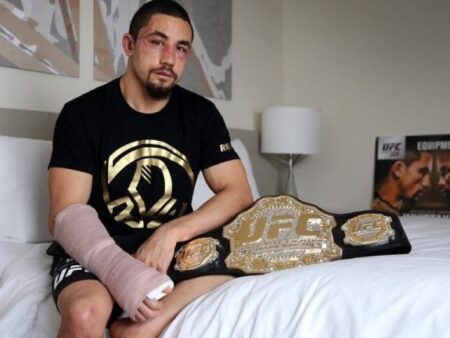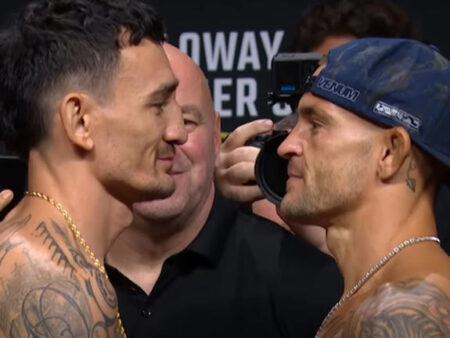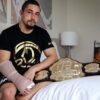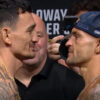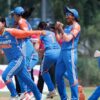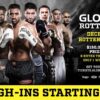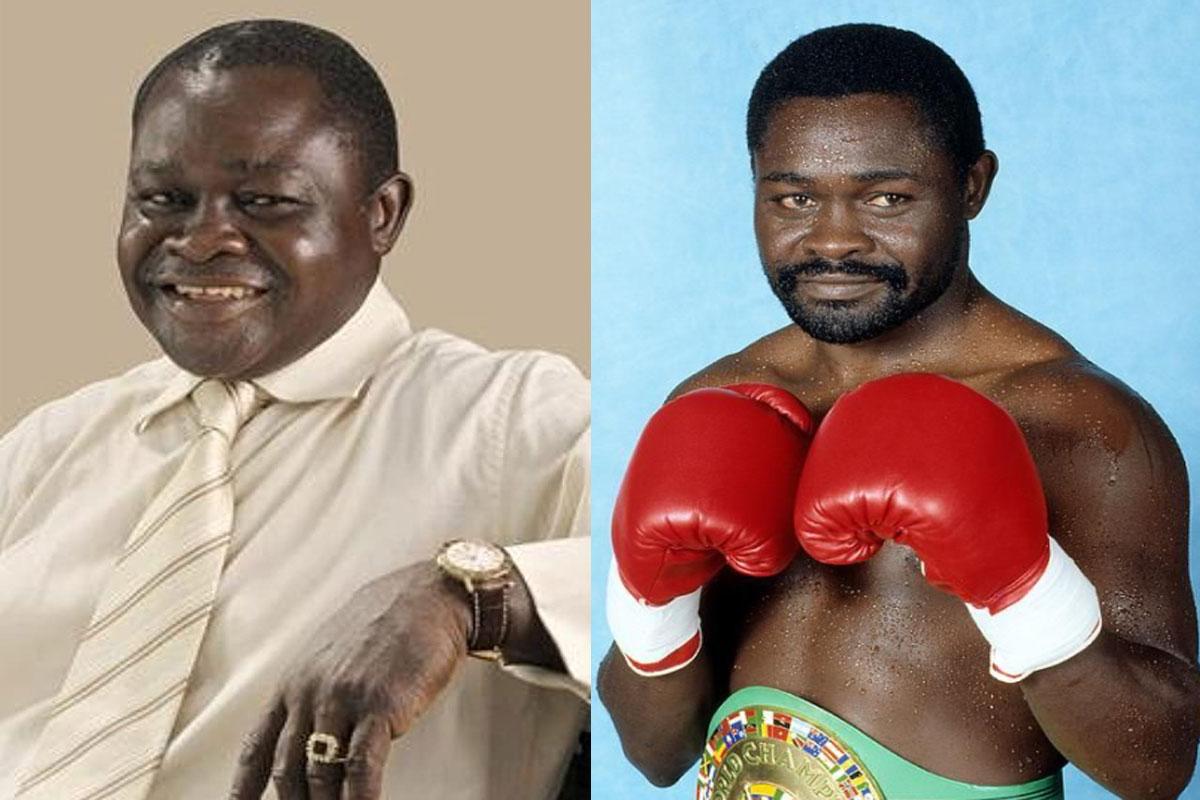
In the sun-baked heart of Accra, a profound narrative unfolds, weaving together the past, present, and future of Ghanaian boxing. Here, the legendary Azumah `The Professor` Nelson, an icon whose name resonates with courage and triumph, extends his hand, not just in greeting, but in a symbolic gesture of wisdom to Samuel Takyi, a prodigious talent poised to carry the torch. This is more than a training session; it is a meticulously choreographed passing of an invaluable legacy.
The Undiminished Aura of a Warrior
Even as he approaches his 67th birthday, Azumah Nelson moves with an understated regality, his silhouette instantly recognizable as he emerges from his serene home in a quiet Accra suburb. There`s no hint of a man nearing the twilight of his years; instead, one witnesses the coiled energy of `The Professor,` a two-weight world champion whose intensity has, remarkably, remained undimmed. Clad in a crisp white shirt adorned with the majestic face of a lion, he embodies the warrior spirit that defined his magnificent career. It is, however, the depth within his dark, piercing eyes that truly captivates – a silent testament to determination, intelligence, and a lifetime spent mastering the brutal art of boxing.
This rare glimpse into Nelson`s world is courtesy of Michael Amoo-Bediako, a British-Ghanaian fight promoter and manager, who has meticulously arranged for 24-year-old Samuel Takyi to train under the watchful eye of the legend. Takyi, Ghana’s most promising young boxing prospect and an Olympic bronze medalist, represents the future. Amoo-Bediako, known for guiding Richard Commey from an Accra gym to an IBF lightweight title, views this mentorship as an indispensable educational opportunity, a blueprint for Takyi`s own ascent to world honors.
“I sent Samuel to Azumah Nelson because he is the godfather of African boxing,” Amoo-Bediako explains. “Of all people, he knows what it takes to succeed coming from such a poor background. His career is second to none – he was a world champion for 10 years and he did it in an era that was stacked with great champions. For a developing fighter like Samuel, just to be in Azumah’s presence is awe-inspiring, and to be able to take from him first-hand knowledge of his experiences reaching the top is invaluable.”
From Bukom`s Crucible to Global Aspirations
Ghana, a nation steeped in fighting heritage, has produced nine male world champions since David Kotei`s pioneering WBC featherweight triumph in 1975. Yet, amidst this rich tapestry of pugilistic prowess, Nelson stands as the undisputed titan. Remarkably, the majority of these champions, including Nelson, trace their roots back to Bukom, a resilient and proud enclave within Accra’s Jamestown district. Here, fishing and fighting are not merely professions but integral threads woven into the fabric of everyday existence.
Samuel Takyi is the latest prodigious talent to emerge from Bukom`s relentless production line. This training session marks a pivotal moment, a transfer of sagacity from master to apprentice. Nelson, holding no contractual or financial stake in Takyi`s career, views this mentorship as an inherent duty – a commitment to impart his considerable wisdom to those striving to follow in his formidable footsteps. It`s a gesture that speaks volumes about the communal spirit that underpins Ghanaian boxing.

A Symphony of Wisdom: The Professor`s Anecdotes
Before the sweat and exertion commence in Nelson`s compound gym, we gather in his air-conditioned living room, a welcome reprieve from Accra`s punishing midday sun and humidity. `The Professor` begins to weave a spell, his vivid recollections painting a glorious canvas of a legendary fighting career. The tales are delivered with an engaging blend of humility and an unmistakable confidence, born from battles won and lessons learned.
A friend recounts watching Nelson`s brutal one-round knockout of Pat Cowdell in 1985, and the profound pride ignited by Nelson waving the Ghanaian flag. Nelson nods, acknowledging the sentiment, then, with a twinkle in his intense eyes, recalls the fight from his perspective.
“I told people that they should come early for that fight so they could see me knock him out,” he recounts, a subtle smirk playing on his lips. “But they didn’t believe me. When the fight started, lots of fans were still outside! Some were not even in their seats and the fight was already over. I did warn them, but they hadn’t listened!”
This unwavering confidence wasn`t born of arrogance but from meticulous preparation. “If I was going to fight 12 or 15 rounds I would train to fight for 25 rounds, so I had a lot of stamina,” he explains. “I always wanted to take the fight out of the judges’ hands and came to knock the other man out. If you tried to go toe-to-toe with me, like Cowdell did, then you were in trouble.”
The Salvador Sanchez Saga: A Loss That Forged a Name
Nelson recounts his 1982 encounter with the formidable Salvador Sanchez at Madison Square Garden. He entered the ring a 13-0 unknown, a last-minute substitute with just 17 days` notice, challenging for the same WBC featherweight title he would later dominate. Though stopped in the final round of an epic struggle, a smile plays on his lips at the memory. “I lost, but the fight helped make my name,” he reflects. “It showed people watching across the world and the other fighters in my weight division that I was somebody, that I was coming for them and that they needed to be ready.” It’s a classic Azumah Nelson assertion: even in defeat, a legend was being forged, a statement delivered without a hint of arrogance, only the unwavering conviction of a man who knew his destiny.
`The Professor` steadfastly insists that, with a full training camp, he would have prevailed in a rematch – one of boxing`s great hypotheticals, tragically denied by Sanchez`s untimely death weeks later. His charm lies in this quiet certainty, underscored by the intermittent sparkle in those ever-intense eyes.
Conquering the Doubters: The Fenech Rematch
Nelson`s upbringing in harsh poverty instilled in him an unshakeable will to win. His “origin story” is foundational to understanding `The Professor.` His journey began at nine or ten, challenging a gloved boy in a gym, only to be soundly thrashed. “I was so ashamed. I went back to my house and thought: `what did I do wrong? Why couldn’t I punch him?`” This initial humiliation ignited a lifelong quest for mastery. “I soon realised I needed a good coach, to teach me how to stand, how to dodge, how to punch. If you have someone like that, you can go far.”
And far he went. After six defenses of his WBC featherweight title, he moved to super-featherweight, securing two reigns and memorable victories against Gabriel Ruelas and Juan Laporte. However, he singles out his 1992 rematch against Jeff Fenech in Australia as the career highlight. He won by an eighth-round stoppage before 40,000 rabid Australian fans, a victory made sweeter because “everyone was doubting me and telling me I shouldn’t go there.” Even then-President Jerry Rawlings of Ghana called, expressing concern. “I told him not to worry, and that I would knock Fenech out,” Nelson recalls. “In the first round I hit Fenech with three jabs and then a right hand and he went down. All Ghanaians then knew they didn’t have to worry!”
The Sweatbox: A Lesson in Relentless Pursuit
Throughout Nelson`s enthralling narrations, Samuel Takyi, tall yet slender, sits quietly, a picture of attentive absorption. He smiles politely at the older man`s good-humored assertions, absorbing every word, every nuance. As the training session beckons, Nelson turns to the youngster with a few final, resonant words of wisdom:
“In Bukom we are very tough. Anybody from Bukom can be a world champion if they want to be. If you don’t become a world champion, then your coach is not good enough, and your training is not good enough. You don’t have many years in boxing, so the few years you do have, you have to work hard and make the most of them. Put the hard work in when you’re young.”
With these words echoing in his mind, Takyi heads across the courtyard to Nelson’s gym – a reassuringly old-school “sweatbox” devoid of modern frills. `The Professor` orchestrates several rounds of shadowboxing, his gaze never wavering, his periodic instructions sharp and precise. He urges Takyi to find more power, more speed, even shadowboxing himself to demonstrate, shouting, “pow, pow, pow!” as he punches the air with phantom force. Following grueling sessions on a wall pad, a heavy bag, and a series of challenging stretches, Nelson`s verdict is concise: “He’s ready.”

Takyi`s Echo: A Champion`s Resolve
Reflecting on an hour of intense training with Africa`s greatest boxer, Takyi’s humility is palpable. “I’m very thankful to everyone for this opportunity,” he says, his voice quiet. “Training with ‘The Professor’ – the legend himself – is very different but very special. I’ve got the dedication `The Professor` talks about to go all the way. He has given me even more motivation.”
Takyi`s own path into boxing mirrors Nelson`s in its raw, almost accidental beginnings. “One day a friend told me about a boxing club, so I went along,” he recounts. “There was a guy they said was their champion and they asked for volunteers to fight him. I put my hand up straight away. It was very tough, he beat me up. But one of the coaches told me: `hey you can fight, you’re a hard guy!`” From that initial humbling defeat, a champion`s resolve was born, leading him to the national amateur squad, Olympic qualifiers, and a coveted bronze medal at the Tokyo Games.
“When I came back with the bronze, life was very different,” Takyi admits. “All sorts of new things began happening. I’m blessed now, to be working with ‘The Professor,’ for example. I’ve won African gold and Olympic bronze and the next aim is to be world champion. Ghana doesn’t have a world champion right now.” His ambition extends beyond personal glory: “Like ‘The Professor’ said, I have to work hard, listen and take advice if I am to get to the places that he got to. Yes, I might fight abroad one day, but I always want to come back home to Ghana. I want to build the nation up, like ‘The Professor’ has always done, and help my people and the boys coming through.’ They need someone like me to help take them to the top, to teach them, so we have more Professors’, more world champions.”
A Legacy Shared, Not Owned
As the session concludes, Nelson summons us for one final audience and a blissfully cold drink in his front room. Before we depart, his focus returns to Samuel and the countless other young boxers like him.
“The future is up to them,” Nelson states, his voice calm yet firm. “I am happy to train these boys, but it is all down to the individual and their hard work. I don’t sign contracts with anyone. God gave me my career for free, so I give my advice for free. Listen if you want to listen, but you do not have to… And now, I must rest.”
With that, Azumah Nelson – a hero of countless battles, a man content with his achievements and the wisdom he so generously imparts – gracefully retreats into the cool sanctuary of his bedroom. Outside, the omnipresent humidity awaits, but Samuel Takyi departs with a renewed sense of purpose, carrying the echoes of `The Professor`s` words. He embarks on the next stage of his boxing journey, hoping that the path, which began with a poverty-stricken childhood in Accra, will eventually wind its way – as it did for Azumah Nelson – to fistic stardom, and beyond, to a legacy of his own.
